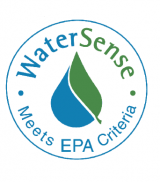4th step
Water saving
Some numbers…
It is estimated in 2020 that on average, each Canadian uses about 329 liters of water per day at home alone! This same figure rises to 400 liters for a Quebecer. Note, however, that it is estimated that Quebecers' water consumption has decreased by 32% in nearly 20 years, since it climbed to 777 liters of water per day in 2001.
However, despite this improvement, we can see that for the moment, we are still very large consumers of drinking water. By comparison, the average in Canada is 251 liters / day; as for the European average, it varies from 150 to 200 liters / day depending on the region.
Of course, the problem of water leaks on public networks has a significant impact since it is estimated that, depending on the region, between 13% and 33% of the water distributed is quite simply wasted. These average rates by region can climb maddeningly in some cities, although the global problem has been brought to the fore more in recent years.
On the collective portfolio side, the production of a cubic meter of drinking water in Quebec costs an average of $ 1.51. Water savings of 20% could represent savings of $ 2 billion over 20 years.
Fresh water is scarce on our planet. Every drop counts and it is also at the individual level that we must make a difference. Reducing your water consumption is not that complex, if you start by using the right devices!
In the house
For individual activities at home, water consumption breaks down as follows:
- 30% toilet
- 30% bath and shower
- 20% laundry and cleaning
- 10% food
By making the right choice of plumbing fixtures, you'll reduce your water consumption by at least 50% compared to standard fixtures. And we are not even talking about changing lifestyle habits yet.
Low flow plumbing fixtures
 Generally speaking, for all the fittings in your home, we recommend Watersense Certification, which is an environmental certification issued by the United States Environmental Protection Agency (EPA). It is also a good indicator for the quality of product components.
Generally speaking, for all the fittings in your home, we recommend Watersense Certification, which is an environmental certification issued by the United States Environmental Protection Agency (EPA). It is also a good indicator for the quality of product components.
Here are three very simple ways to greatly reduce your water consumption, choose:
- Low flow taps, which consume 5L / minute instead of 13;
- More efficient toilets: change your old model of toilet for a 3L / flush model and you will save up to 20 L of drinking water per flush;
- A low-flow shower head: this is THE thing to do as a priority. It only takes a few minutes and saves thousands of gallons of water.
While the standard models consume 9.5L of water / minute (or even 14L of water for some models still on the market!), You can reduce this flow to around 5.7 or 6.6 liters of water per minute.
Installing an efficient shower head has a real impact on water consumption, while being easy to do, and inexpensive (starting at $25). And it's also a profitable move, since by saving 15 000 to 20 000 liters of water per year, you will also save up to $80 in water heating / year. Finally, low-flow showers are no less comfortable… They just send less water everywhere!
Appliances
 ENERGY STAR certification provides an excellent guideline, including for the water consumption of dishwashers and washing machines. For example, ENERGY STAR qualified washer models use about 40% less
ENERGY STAR certification provides an excellent guideline, including for the water consumption of dishwashers and washing machines. For example, ENERGY STAR qualified washer models use about 40% less
water than others. Most are front loading.
Thus, rather than the 150 liters required for a load by a traditional washer, an ENERGY STAR model will use between 70 and 90 liters.
For dishwashers, we are talking about 50% less, with 20 liters of water for an ENERGY STAR appliance versus 40 liters for the standard. And there is no need to rinse the dishes before putting them back in the appliance, removing the excess is enough: an estimated saving of 40 liters of water when you start!
Outside: landscaping
The quantity of water consumed for the flower beds and the vegetable garden can be greatly reduced or even reduced to zero by simple actions:
- Favor native plants resistant to drought
- For watering, use a drip system and a timer to irrigate at night
- Install a rainwater collection barrel
- Use compost in your plantations, it will help maintain moisture levels (among other benefits!)